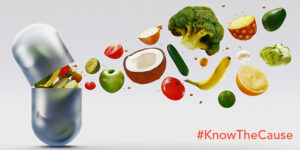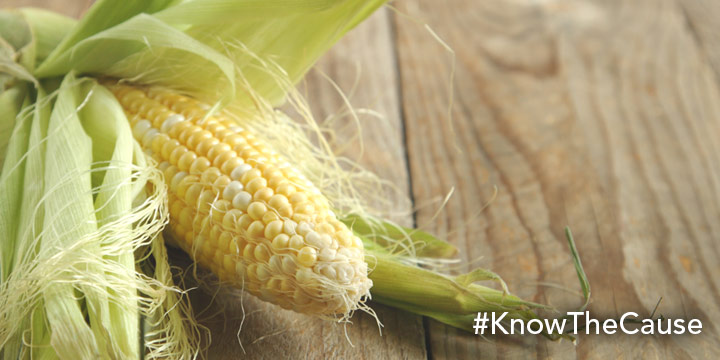

All of us likely remember learning about how the early American settlers learned how to grow corn from the native Americans, and how this and other skills were critical to their survival. Corn is woven into the history of the American story, and today it remains an important part of both our economy and as a staple food. How could Corn be so bad?
Corn’s utility as a crop does extend beyond food; it is used to make ethanol––an important source of fuel. It is also used to make things like plastic. The chemistry of corn makes it a unique crop from an industrial perspective. However, by and large, corn is still used as food––both for animals and people.
While most people may not frequently consume corn on the cob or corn in it’s whole form, corn has become an important part of our industrialized food system. Today, you will find corn in an overwhelmingly large number of processed food products, which unfortunately form the basis of the way most people in America eat.
Simply reading the ingredients list of any processed food will likely reveal some sort of corn derivative: corn syrup, high fructose corn syrup, corn starch, corn flour. Even things like ascorbic acid––Vitamin C––can be derived from corn and used on an industrial level.
Corn is also used as feed for conventionally raised animals. Particularly, corn is fed to cattle as a way to fatten them. Typically, cows would subsist on a diet of grazing grass, but corn constitutes a cheap way to give them an abundance of calories.
But there remains a glaring problem with corn.
According to research published in the Journal of the American Medical Association, corn is almost always contaminated with mold poisons, known as mycotoxins. Corn, as it turns out, is particularly susceptible to mold infestation, especially when it is stored in a silo. When conditions are right, these molds produce toxins that contaminate corn.
Corn and other crops are screened for some of these toxins, such as aflatoxin (which causes liver cancer and is among the most carcinogenic, naturally-occurring substances on earth). Other toxins are less regulated. Ultimately, even corn samples that meet the guidelines set by regulatory agencies may still contain some of these toxins, albeit very low levels.
A main concern is that because corn and its derivatives are so prevalent in our food system––literally in foods we eat every day––how much of these poisons are we actually getting exposed to? Likely, it is a higher amount than many people think, and it is concerning to think about the what potentially health effects of this constant, low-level exposure to mold poisons might be.
Another concern is that if you are eating meat from conventionally raised animals, there is a high likelihood that you are being exposed to mycotoxins via your meat. This is why The Kaufmann Diet focuses on grass-fed beef, pastured poultry, wild caught fish, etc. Conventionally raised meat is potentially contaminated with these poisons.
Ultimately, corn and all its derivatives are excluded on The Kaufmann Diet, indefinitely. This certainly requires a change from the way most people eat. Often though, after a few weeks on The Kaufmann One Diet, many people report feeling better than they ever have, effortless weight loss and relief from symptoms that have plagued them for years.
Doug Kaufmann has written many books that cover a full range or health issues. Find out which of his books best suits you by clicking the button below.
Doug Kaufmann developed his diet after years studying the clinical effects of pathogenic fungi on the body. Fungi and yeasts can become parasitic organisms on and inside our body, causing health problems that can be difficult to diagnose. Learn more about the Kaufmann Diet, change your life and know the cause.
We encourage all visitors to this site to take some time and study these technical articles prior to initiating lifestyle changes, including dietary changes and to do so with their physician’s awareness and approval. The articles posted in this link are scientific and with few exceptions are taken from medical journals familiar to healthcare workers.
Looking for help assembling antifungal Kaufmann Diet approved recipes for breakfast, lunch or dinner? We have several videos, books and recipe write ups here on Know the Cause that will help your health journey. The recipes in this section are so good, you’ll feel like you’re indulging. No sacrifice needed! Enjoy.
© 2024 Mediatriton Inc. All Rights Reserved • Website by Skynet Solutions